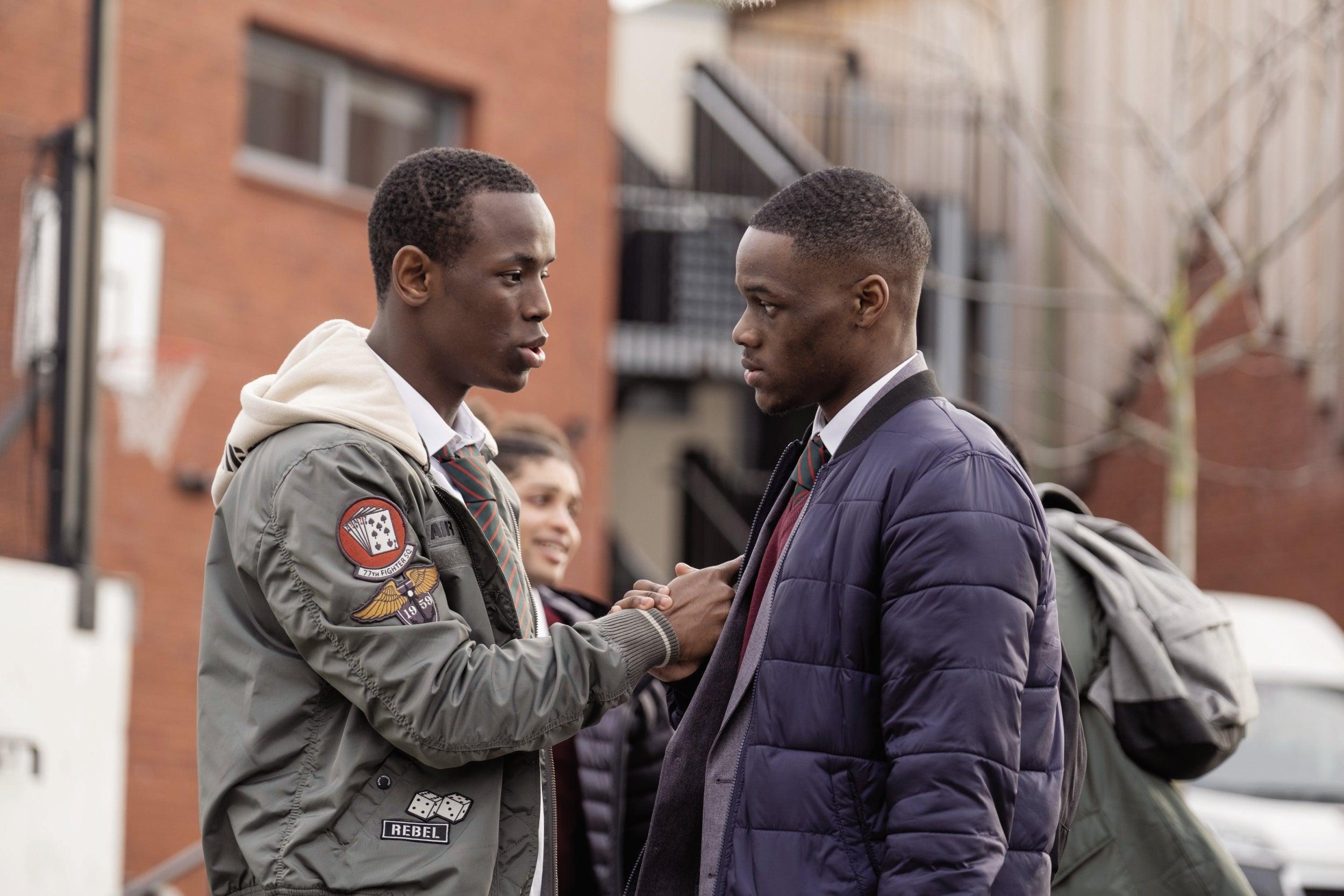Blue Story being treated as the primary culprit in the Birmingham fracas says a lot about the world in which we live
After Vue cinemas cancelled Blue Story screenings over a brawl in Birmingham, arts columnist Fiona Sturges looks at how society’s fear of art inciting violence is entirely misplaced


Your support helps us to tell the story
From reproductive rights to climate change to Big Tech, The Independent is on the ground when the story is developing. Whether it's investigating the financials of Elon Musk's pro-Trump PAC or producing our latest documentary, 'The A Word', which shines a light on the American women fighting for reproductive rights, we know how important it is to parse out the facts from the messaging.
At such a critical moment in US history, we need reporters on the ground. Your donation allows us to keep sending journalists to speak to both sides of the story.
The Independent is trusted by Americans across the entire political spectrum. And unlike many other quality news outlets, we choose not to lock Americans out of our reporting and analysis with paywalls. We believe quality journalism should be available to everyone, paid for by those who can afford it.
Your support makes all the difference.Art is meant to make us feel things. Films, pop songs, paintings, books, plays: all have the capacity to provoke joy, fear, shame, laughter, boredom and sadness. They can make you furious too, which is why I do my best to avoid the films of Lars von Trier. What art doesn’t do is cause an entire personality transplant, turning previously peaceful people into machete-wielding maniacs.
It’s amazing that this should need spelling out in 2019. And yet, after the British film Blue Story was pulled from two cinema chains at the weekend after a fight broke out at a Vue cinema in Birmingham, here we are. Directed by Andrew Onwubolu, aka Rapman, the film sees two childhood friends becoming rivals in their teens due to postcode warfare, and has been applauded for its depiction of gang culture’s cycle of violence and retribution. Writing in The Observer, the film critic Simran Hans praised it for “underscoring the tragedy of corrupted innocence, constricting codes of masculinity and the aftermath of trauma”. Yet the critical plaudits mean little to Vue and Showcase cinemas, which have cited the safety of their customers as the reason for removing the film from their screens. In doing so, they have directed the blame not at those who started the fight but with Blue Story itself.
This isn’t the first time violence has erupted at a cinema, and it won’t be the last. However, when a man was attacked by a group of teens during a screening of Bohemian Rhapsody in Portsmouth last year, there was no suggestion that the movie should no longer be shown. When 12 people were killed during a shooting at a screening of The Dark Knight Rises in Aurora, Colorado, in 2012, it was generally understood that the gunman was to blame, not Batman. That Blue Story has been treated as the primary culprit in the Birmingham fracas says a lot about the world in which we live – one in which a film featuring a black cast, made by black filmmakers and about issues overwhelmingly affecting black communities is subjected to greater scrutiny and suspicion than those made by, for and starring white people.
Nonetheless, fear of art and its corrupting properties has been around for aeons, and it’s not confined to cinema. The 19th-century French artist Gustave Courbet’s painting “The Origin of the World”, depicting a close-up of a vulva, was deemed too dangerous to show in the artist’s lifetime, while it took a sensational trial in 1960 for the ban to be lifted on Lady Chatterley’s Lover, DH Lawrence’s novel about an adulterous affair. Rock musicians have long been a target for the morality police: Marilyn Manson received death threats and his gigs were picketed after it was alleged that the perpetrators of the 1999 Columbine massacre were fans of his music (the state of South Carolina actually paid him not to play there). Of course, Manson wasn’t any more responsible for the Columbine killings than The Beatles were for the actions of his namesake Charles Manson – having ordered the deaths of Sharon Tate and the LaBianca family in 1969, the cult leader claimed that there were subliminal messages in the “White Album” that told him to do it.
Special ire is reserved for films deemed too political, too sexually explicit or too violent, and therefore potentially damaging to audiences. Taxi Driver, starring Robert De Niro, was alleged to have been instrumental in the delusions of John Hinckley Jr and his attempted assassination of Ronald Reagan in 1981. A Clockwork Orange, Stanley Kubrick’s adaptation of the Anthony Burgess novella that contained scenes of torture and sexual violence, was removed from cinemas at Kubrick’s behest after reports began circulating of real-life crimes allegedly inspired by the film. This year, Joker has been under fire for appearing to sympathise with a murderous psychopath; the film’s violent content was described by some commentators as “dangerous”. Such agitated pre-publicity led to police officers being stationed outside a handful of screenings in the US to assuage any unrest.
It’s one thing to dislike or object to violence in a film on grounds of taste or gratuitousness, but another to suggest it shouldn’t exist out of fear of what it might provoke. Were we to take this idea to its logical conclusion, we would have to think seriously about showing children Tom and Jerry for fear of the damage they could wreak with a household broom, or Wile E Coyote cartoons, lest they provoke a spike in dynamite sales.
There are reasons why children are discouraged from watching sexually explicit or brutal content, because they don’t yet possess the tool to process and understand it. Adults are considerably more sophisticated in their thinking. Charles Manson said The Beatles told him to commit his crimes, though the New York killer Son of Sam claimed to have taken his orders from a dog. Films don’t inspire violence any more than dogs do. The blame lies entirely with people.
Join our commenting forum
Join thought-provoking conversations, follow other Independent readers and see their replies
Comments